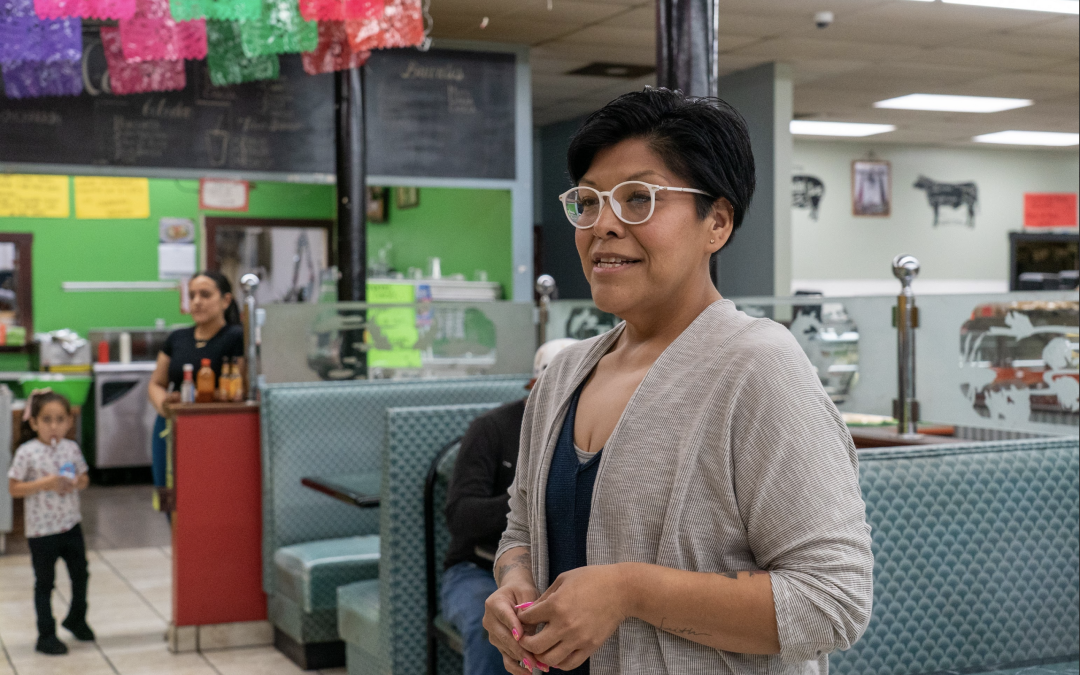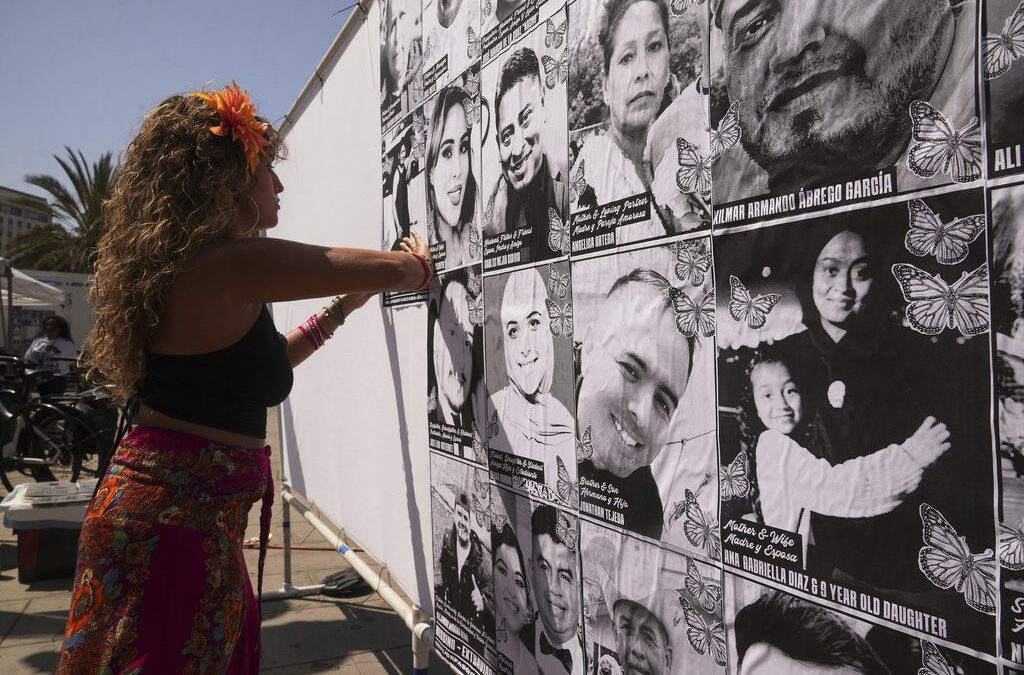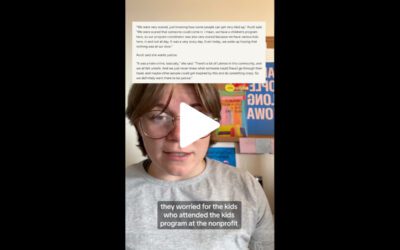
Maria Gonzalez tours Marshalltown, Iowa’s small businesses with rural advocates. (Photo by Andrea Desky)
This commentary by Michael Chameides was originally published on OtherWords.org.
In Marshalltown, Iowa, the spirit of American entrepreneurship is alive and well.
Residents have opened businesses, among them a grocery store offering fresh food that’s created dozens of jobs. Many of these small businesses are owned, managed, and staffed by immigrants. They’re boosting the local economy and improving the quality of life.
Together, people in Marshalltown are forging something special. Despite the rural Midwest’s reputation for homogeneous small towns, around a third of Marshalltown’s residents are Latino or members of other immigrant groups.
But a crucial question looms: will Washington stand with them? Or will misguided policies get in the way?
Across the country, the federal government is spending billions on a cruel immigration policy that’s causing chaos and harming all of us. People are being arrested based on their skin color and profession, families separated, and entire residential neighborhoods and business districts disrupted by masked agents.
In 2006, Marshalltown faced an earlier version of this crisis. The federal government conducted a massive immigration raid on employees at the town’s largest employer, a meatpacking plant.
Maria Gonzalez, a community organizer with Iowa Migrant Movement for Justice (IMMJ), was just 17 at the time. Federal authorities detained her mom, leaving Gonzalez to take care of herself and her siblings. Eventually, they secured their mom’s release, but the scars remained.
“After the raid, we were so emotionally drained that it was hard to think or process anything,” she recalls. “My mom is here, but other people’s family members were deported. We felt a survivor’s guilt.”
This wasn’t just a hit to individual families—it torpedoed the town’s social fabric and economy.
As then-Mayor Gene Beach told NPR, the disruption “set us back 10 years forming a real community.” Latino businesses saw sales plummet, and overall sales tax revenue declined. It’s a stark reminder of how federal policies can harm American communities.
Larry Ginter, a family farmer and member of Iowa Citizens for Community Improvement (CCI), called the raid a “huge tragedy.” When I joined a group of rural advocates who visited Marshalltown earlier this year to learn from the community’s efforts, Ginter stressed the vital link between farmers and the workers in nearby towns and cities—and how cruel immigrant policies can sever that link.
Despite that trauma, residents slowly worked to rebuild their diverse, supportive community. And when disaster struck again, that hard work paid off.
In 2020, a 99-mph windstorm tore through town. Gonzalez initiated a cleanup that quickly grew into a weeks-long, town-wide project. Neighbors showed up with chainsaws, passersby stopped to join, a devoted aunt cooked meals, and a wrestling team even volunteered one day.
Together the town also rallied for federal disaster recovery funds and helped deploy them. Many new businesses now occupy storefronts rebuilt with these funds. “The community decided to show up for each other. We have seen the good of the people of Marshalltown, and we want to keep going and growing,” Gonzalez recounts.
Today, nearly 20 years after the raid, Marshalltown has momentum. Immigrants who persevered through hardship now run businesses like that grocery store downtown—something too many towns are forced to do without. People have come together to look out for each other and contribute to the economy.
Gonzalez affirms: “It’s the values of community and family and love. And that’s why I’m trying to stay here.”
Marshalltown’s story presents a clear contrast of how federal policy can affect a community. The government can supercharge the hard work of people like Gonzalez, Ginter, and small business owners. Or it can cause immense disruption and send us backwards.
With Marshalltown in mind, I worked with 40 organizations—including Iowa CCI and IMMJ—to produce the Rural Policy Action Report, which provides a federal policy agenda to improve rural people’s lives and support workers, farmers, and small businesses.
As ICE raids terrorize communities large and small, Americans should take a lesson from Marshalltown and tell Congress: We’re stronger when everyone is free to participate and contribute.

Pascual Pedro-Pedro not the only one: Immigration arrests, deportations triple in Iowa
Immigration arrests and deportations in Iowa have tripled. You think Iowa is hollowing out now? It's about to get worse. Pascual Pedro-Pedro, the...

Trump administration hands over Medicaid recipients’ personal data, including addresses, to ICE
WASHINGTON (AP) — Immigration and Customs Enforcement officials will be given access to the personal data of the nation’s 79 million Medicaid...

ICE in Iowa: West Liberty man with no criminal record detained
It's happening in Iowa. Pascual Leonardo Pedro-Pedro, 20, of West Liberty, went to a routine annual immigration check-in on July 1—abiding by what...

No county sheriffs have signed ICE agreements in Iowa
Immigration and Customs Enforcement (ICE) is raiding workplaces across the country, wearing tactical gear (and at times arriving in armored...

Immigrant rights group claims Iowa workers’ civil rights were violated in traffic stop
Escucha Mi Voz Iowa and community members from the Iowa City Catholic Worker filed a complaint with the state, alleging an Iowa State Trooper...

VIDEO: Hampton businesses targeted with anti-immigrant flyers
Earlier this month, the Latino community in Hampton, Iowa was rocked by what locals are calling a hate crime: employees of Latino-owned businesses...




